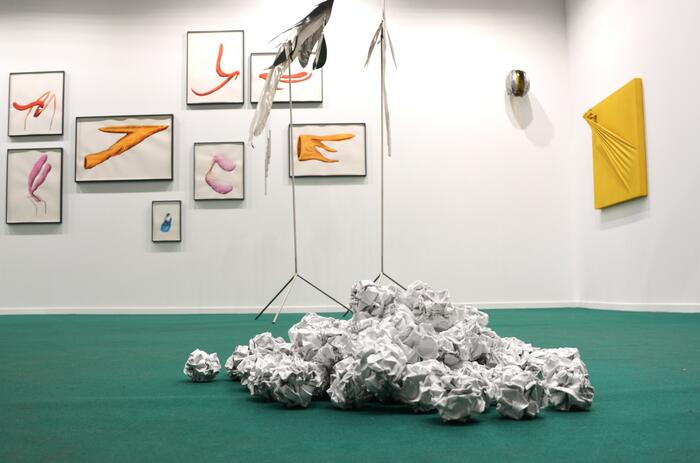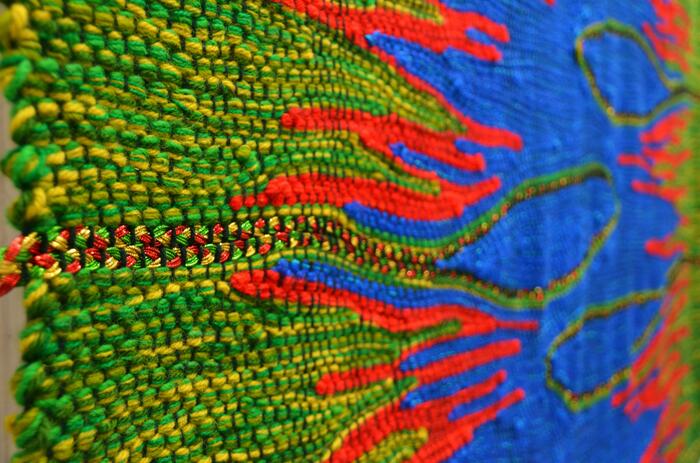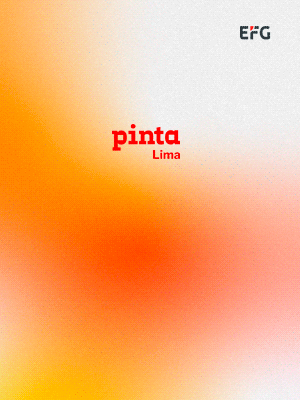ART AT CASA ESCUELA: MEMORY AND FEMALE RESISTANCE
The show brings together a group of eight artists whose work, though diverse in technique and approach, shares a common concern for social justice and historical memory.

In the heart of Mérida, Casa Escuela hosts Gimnasia de Salón (Indoor Gymnastics), a collective exhibition organized in collaboration with CO,MA that explores Mexico’s transition to modernity and the fundamental role of women in educational and social movements across different eras. Curated by Andrea Paasch, it features works by artists Corita, Bárbara Foulkes, Julieta Gil, Florencia Guillén, Elena del Rivero, Fiona Tommasi, Francesca Woodman, and Jessica Wozny.
Inspired by the figure of Rita Cetina (1846–1908), a pioneer of women’s education in Yucatán, the exhibition revisits the concept of "gimnasia de salón," an innovation Cetina introduced into her 19th-century curriculum. The show references domestic spaces that functioned as schools, where learning and family life intertwined in a blend of progress and intimacy. Casa Escuela, which housed the public school “Rita Cetina” from 1982 to 2006, continues to resonate with the same concerns as when it was first established.
A highlight of the exhibition is the presence of Corita Kent (USA, 1918–1986), whose work is presented in Mexico for the first time. An artist and nun known for transforming commercial imagery into powerful messages of social justice, Kent made a significant impact in the 1960s with her visual compositions that blended biblical texts, advertising slogans, and quotes from figures such as Martin Luther King Jr., Gertrude Stein, and E.E. Cummings. Her work conveys a message of hope and commitment, and her legacy as an art educator continues to inspire generations.
The photographic series Cómo, siendo peces, podemos ver el agua by Bárbara Foulkes (Buenos Aires, 1982) captures the interaction between the human body, the force of industrial machinery, and gravity. Focusing on choreography as an expression of external tensions and forces, her work reflects on the physical limits of the body, placing it in constant tension.
Mexican artist Julieta Gil (Mexico, 1987) uses plaster sculptures that reproduce architectural details to examine how public spaces are activated in the present through social protests. Her works capture the deterioration and marks left by demonstrations, revealing the frictions between official history and collective memory.
Florencia Guillén (Mexico, 1977) turns her gaze to the labor history of women in Yucatán, particularly the strikes at the Bellavista Textile Factory, where female workers stood up for their rights. Her works celebrate women’s resistance and emancipation through labor.
Elena del Rivero (Spain, 1949), in her Paisajes domésticos series, explores the relationship between the personal and the social through everyday objects such as tablecloths and kitchen rags. Del Rivero reflects on memory and repair, challenging monumental notions in art and advocating for an intimate vision of power and resistance.
Fiona Tommasi (Mexico), through her diptych Desire Line, delves into themes of identity and visual language, using black-and-white analog film to question representations of the human figure and the viewer’s role in interpreting images.
Photographs by Francesca Woodman (USA, 1947–1981) showcase her iconic exploration of the human body, capturing the sensation of dissolution and ephemeral presence in space. Her work invites reflection on vulnerability and the fleeting nature of the human figure.
Finally, Jessica Wozny (Germany, 1978) presents a series of sculptures and drawings using materials such as burlap, modeling clay, and flannel to investigate entropy and form. Her series Imitations and Sessions/Sitzungen explore meanings beyond language, using material as a medium of expression.
Gimnasia de Salón will be open to the public until March 30, 2025, at Casa Escuela, located at C.65 #530 X 66 Y 68, Col. Centro, C.P. 97000 Mérida, Yucatán, Mexico.









